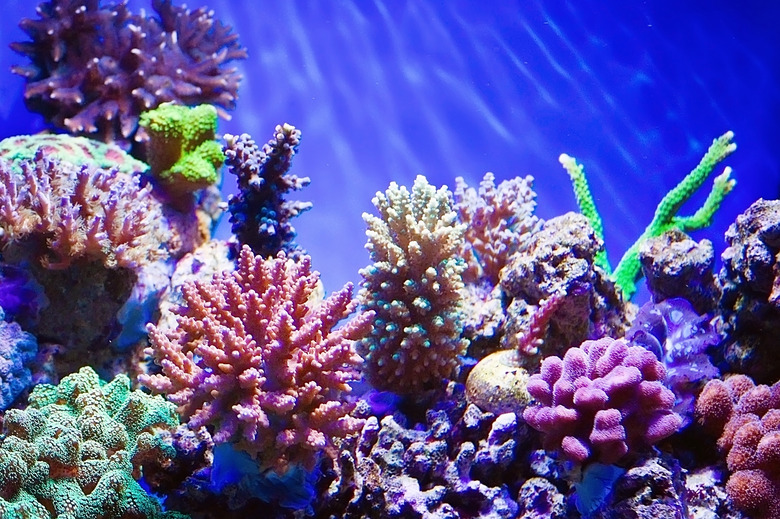How Do Coral Reefs Move?
What is a Coral Reef?
What is a Coral Reef?
A coral is a polyp; a marine lifeform much like a sea anemone. Corals live in colonies and have hard calcium skeletons. As coral colonies grow, expand and die, other coral colonies grow on top of them until a large polyp of hard calcium develops. This massive structure supports not only polyps, but also other types of aquatic life. Layers of coral are referred to as a coral reef.
How do Coral Reefs Move?
How do Coral Reefs Move?
Coral reefs technically do not move. Corals themselves are sessile creatures, meaning they are immobile and stationed to the same spot. They reproduce sexually, releasing eggs and sperm into the water, where baby corals are created before landing and settling. When corals die, they leave behind the hard calcium structure that comprised their bodies. As this layering process is repeated over and over, the coral reef expands and "moves." Some coral reefs are close to 100 feet thick.
Coral Reefs & the Environment
Coral Reefs & the Environment
Coral reefs are important to the ecosystem of underwater life. They provide shelter for lifeforms and, as part of the food chain, eat fish and other sea life. Coral reef growth or lack of growth is considered an indicator of water health. Coral reefs can be damaged by industrial waste and human sewage. The dumping of herbicides and pesticides into the water can poison and destroy coral reefs as well. Coral reefs are also vulnerable to environmental disasters and climate change.
Popular Coral Reefs
Popular Coral Reefs
The most famous and largest coral reef is the Great Barrier Reef, one of the Seven Natural Wonders of the Word. The reef is more than 1,600 miles long and located off the coast of Australia. The Belize Barrier Reef reaches from Mexico to Honduras and is the second largest reef in the world, at nearly 200 miles long. Other famous reefs include the Bahamas Barrier Reef, the Red Sea Coral Reef and Florida's Pulley Ridge Reef.
Cite This Article
MLA
Hunter, Chad. "How Do Coral Reefs Move?" sciencing.com, https://www.sciencing.com/do-coral-reefs-move-5479973/. 22 November 2019.
APA
Hunter, Chad. (2019, November 22). How Do Coral Reefs Move?. sciencing.com. Retrieved from https://www.sciencing.com/do-coral-reefs-move-5479973/
Chicago
Hunter, Chad. How Do Coral Reefs Move? last modified March 24, 2022. https://www.sciencing.com/do-coral-reefs-move-5479973/
